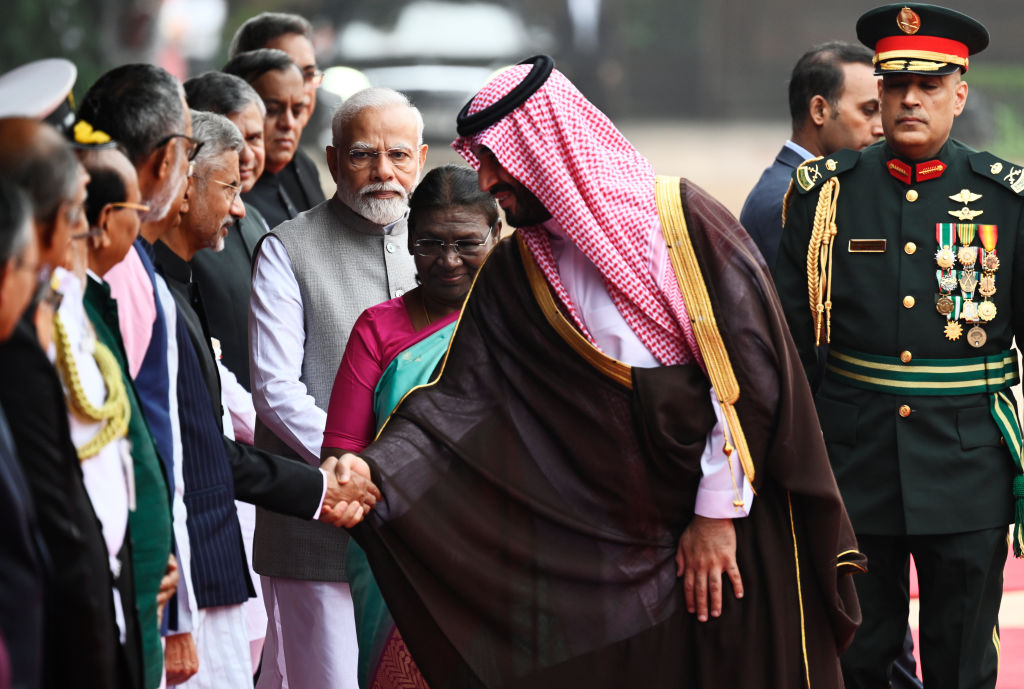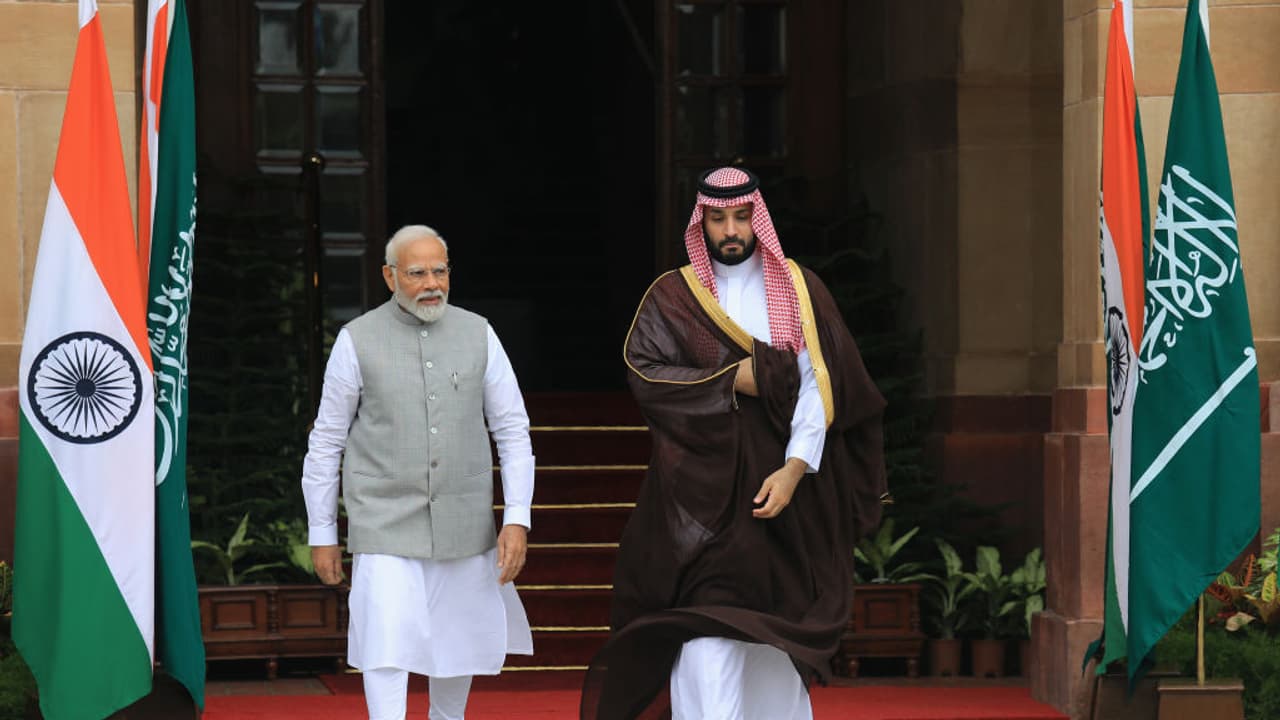Saudi Arabia and Pakistan signed a defense pact. Here’s how it complicates India’s Gulf balancing strategy.
On September 17, Saudi Crown Prince Mohammed bin Salman and Pakistani Prime Minister Shehbaz Sharif signed the Strategic Mutual Defense Agreement (SMDA) in Riyadh. The pact stated that “any aggression against either country shall be considered an act of aggression against both.”
New Delhi reacted cautiously. India’s Ministry of External Affairs (MEA) described it as “a development which formalizes a long-standing arrangement.” Spokesperson Randhir Jaiswal added that India expected Saudi Arabia to “keep in mind mutual interests and sensitivities.”
Pakistani Defense Minister Khwaja Asif went further. Asked whether Saudi Arabia would intervene if war broke out between India and Pakistan, he answered in the affirmative, though without naming India directly.
Despite such claims, the likelihood of Saudi Arabia becoming militarily involved in a South Asian conflict remains slim. Limited information about the agreement has been made public, but examining the context shows what the deal represents, and what it does not.
Timing and Saudi intent after regional turmoil
The signing came just days after Israel’s bombing of Qatar, which rattled West Asia. While Pakistan’s Deputy Prime Minister Ishaq Dar suggested the pact had been long in the making, the timing was significant. Riyadh likely sought to demonstrate solidarity with another Islamic country in a period of heightened tensions, rather than entangle itself in Pakistan’s disputes with India. Saudi officials have stressed the agreement as a continuation of ties, not a new departure.
History shows Saudi Arabia has carefully managed relations with both South Asian rivals. Recently, Riyadh has indicated a willingness to de-hyphenate India and Pakistan in its regional approach. This allowed it to deepen cooperation with New Delhi, particularly in energy, defense, and technology, while maintaining traditional ties with Islamabad.

Saudi Arabia’s reaction to the Pahalgam terrorist attacks reflected this approach. Its strong condemnation of terrorism in Jammu and Kashmir stood out among statements from major Muslim countries. Prime Minister Narendra Modi’s visit to Riyadh earlier this year further broadened ties, expanding them into newer areas beyond energy.
There is little evidence that the new defense pact will shift Saudi Arabia’s position on these issues. Officials in Riyadh, emphasized that the kingdom would continue to strengthen ties with India while contributing to regional peace.
Strategic alarm in New Delhi
Even if unlikely to alter Saudi policy directly, the agreement raises concerns for India. The timing coincides with New Delhi’s push for international backing on Operation Sindoor after the Pahalgam attack. Instead of building momentum, India finds itself more isolated following the Pakistani-Saudi announcement.
This setback comes alongside U.S. President Donald Trump’s decision to revoke the sanctions waiver that had enabled India to develop Iran’s Chabahar port. The convergence of these developments places India in a difficult position.
New Delhi’s strategy of cultivating close ties with both Israel and Arab states is under pressure. As divisions between Israel and the Arab world deepen, India faces mounting difficulty in maintaining this dual posture.
India’s tilt toward Israel in recent years has complicated its Gulf diplomacy. For decades, New Delhi championed the Palestinian cause. But recent alignment with Israel has not gone unnoticed in Arab capitals. Gulf states are now hardening their stance on Israel, forcing India to reassess.
India’s response to the Israeli bombing in Doha hinted at such recalibration. Unlike its muted reactions to earlier Israeli operations, this time New Delhi issued a stern condemnation. Its support for a U.N. General Assembly resolution backing a two-state solution also signals adjustment, likely to safeguard ties with Gulf partners.
